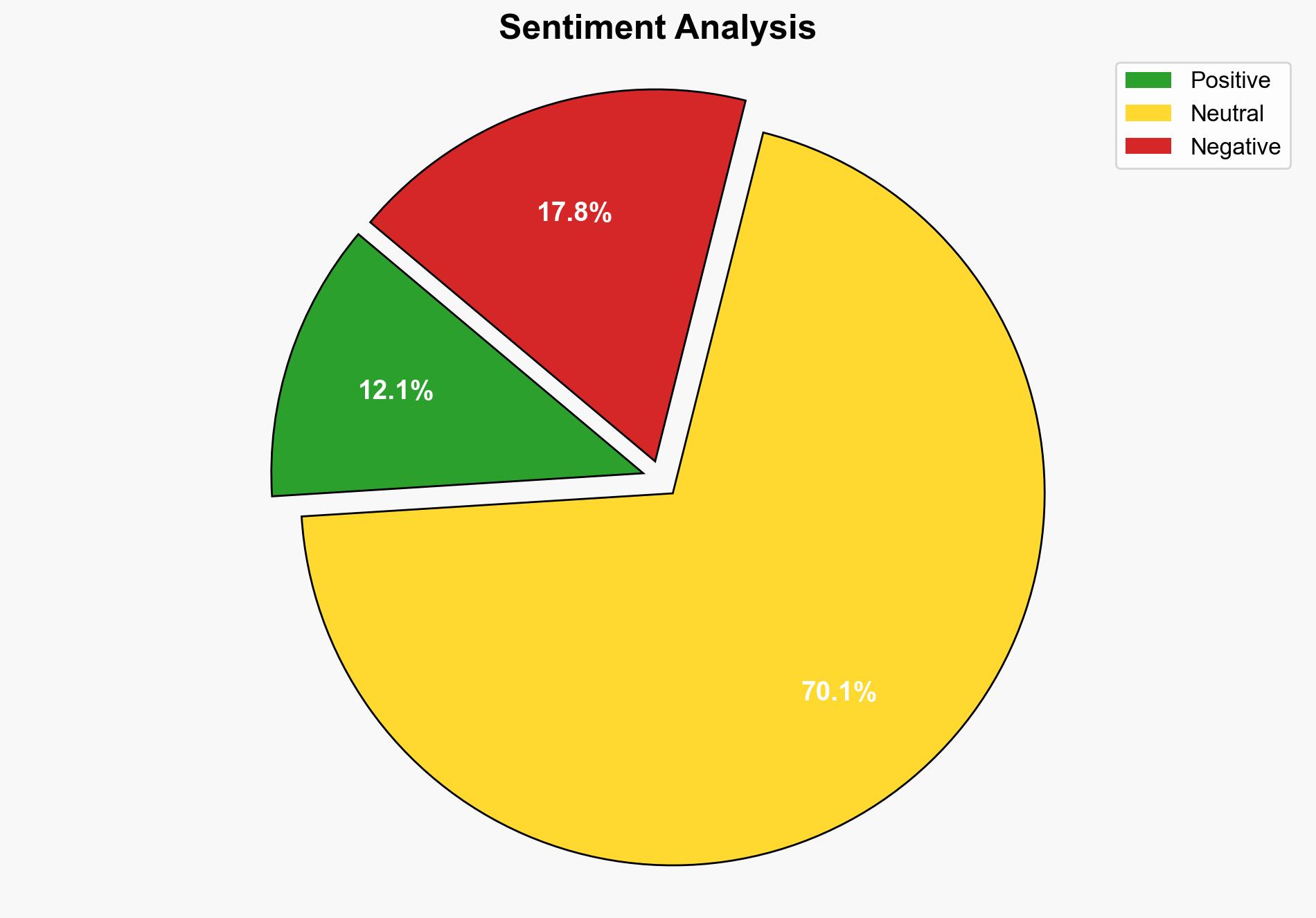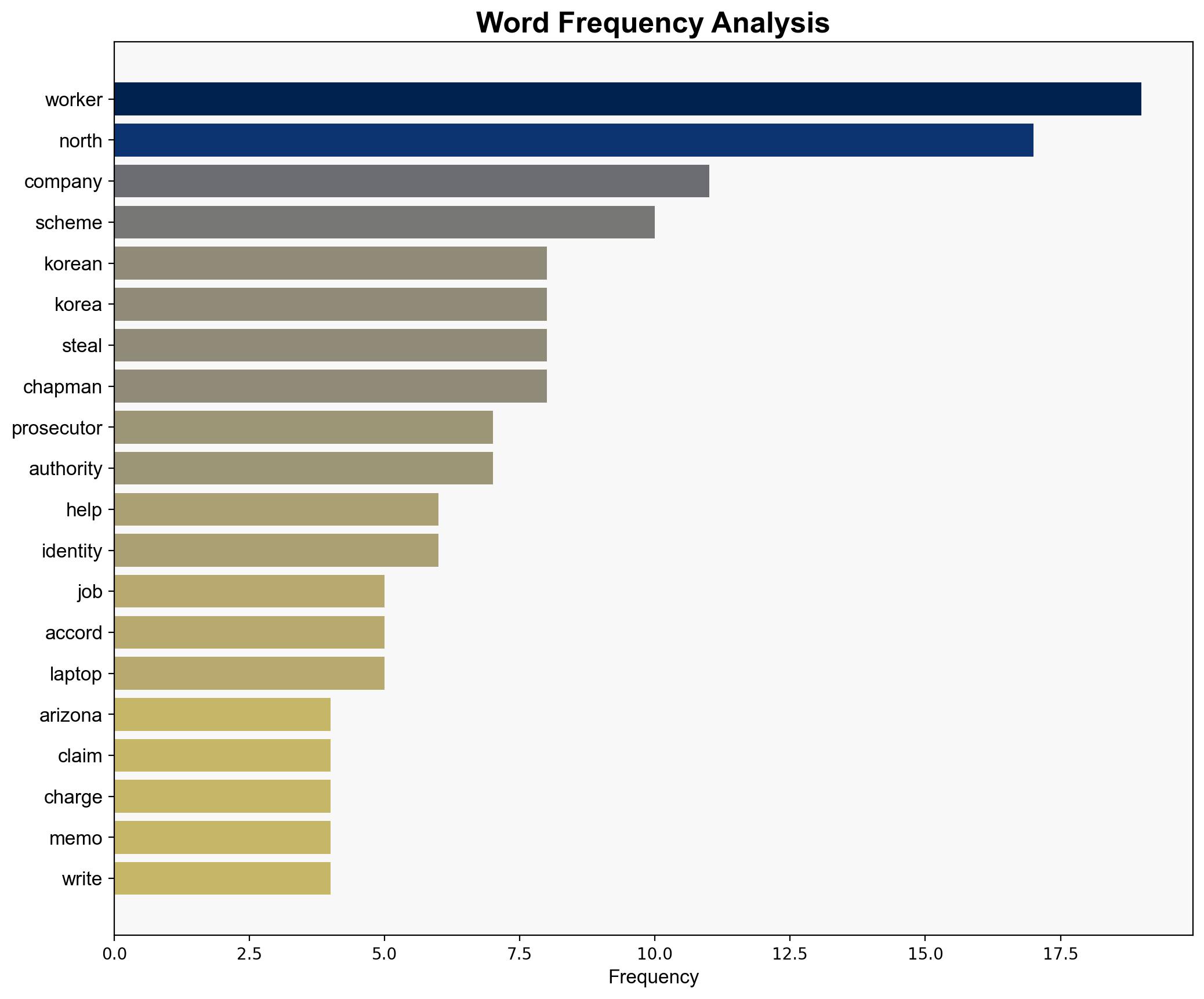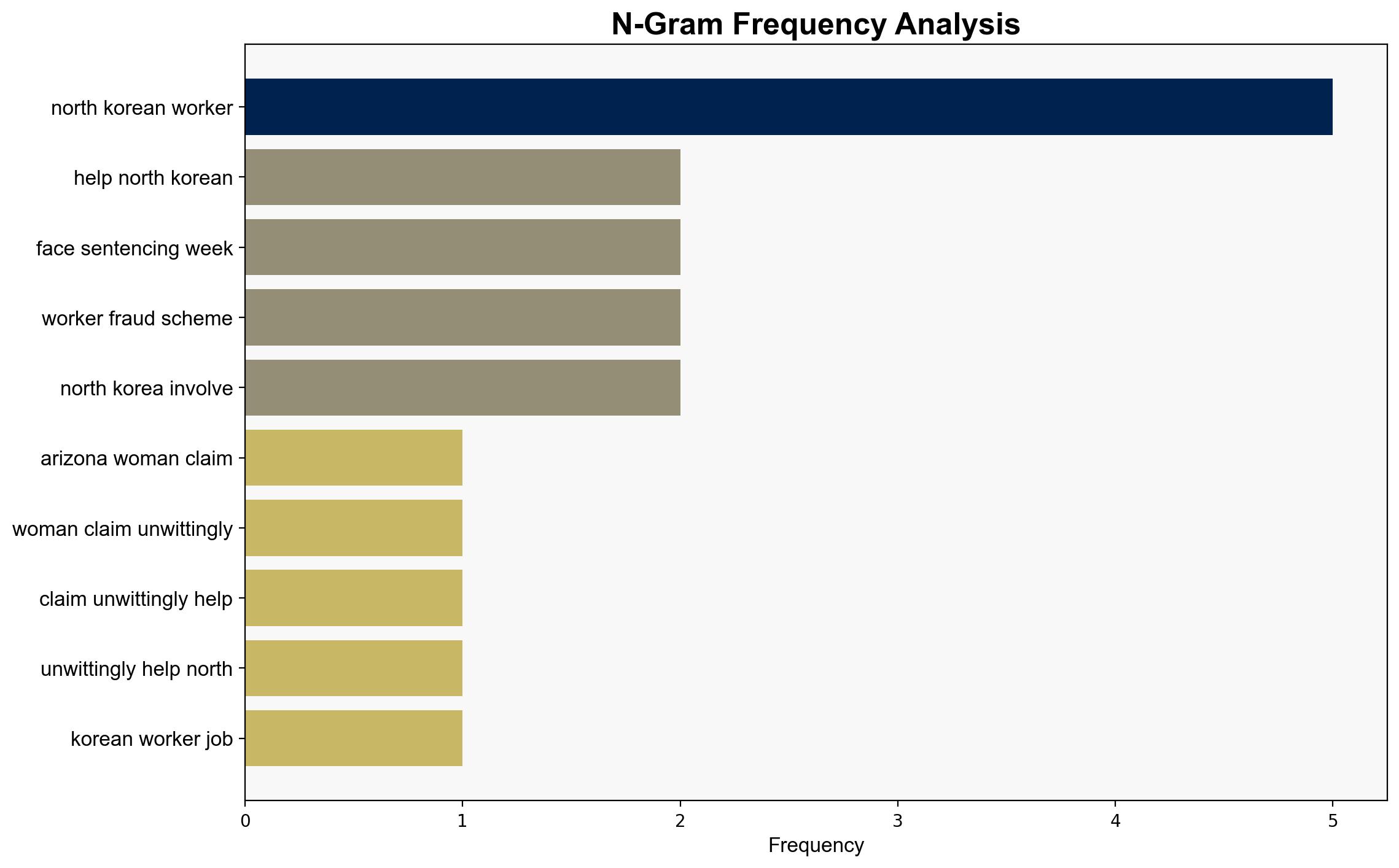An American who helped North Korean IT workers rake in 171 million faces sentencing in scheme that tricked hundreds of Fortune 500 companies – Fortune
Published on: 2025-07-19
Intelligence Report: An American who helped North Korean IT workers rake in 171 million faces sentencing in scheme that tricked hundreds of Fortune 500 companies – Fortune
1. BLUF (Bottom Line Up Front)
Christina Chapman, an American, faces sentencing for her role in a scheme that enabled North Korean IT workers to secure remote jobs with U.S. companies, generating $171 million in revenue for North Korea. This revenue is believed to support North Korea’s nuclear weapons program. The case underscores the vulnerabilities in remote work ecosystems and highlights the strategic importance of enforcing sanctions to deter similar activities.
2. Detailed Analysis
The following structured analytic techniques have been applied to ensure methodological consistency:
Causal Layered Analysis (CLA)
The surface event involves the exploitation of remote work opportunities by North Korean operatives. Systemically, this reflects weaknesses in identity verification processes within global companies. The worldview is shaped by North Korea’s strategic use of cyber capabilities to bypass international sanctions. The underlying myth is the perceived invulnerability of digital economies to geopolitical manipulation.
Cross-Impact Simulation
The scheme’s exposure may strain U.S.-China relations, given the logistical role of Chinese locations. It could also prompt increased scrutiny on international tech hiring practices, affecting global economic dependencies.
Scenario Generation
In a best-case scenario, enhanced international cooperation leads to improved cybersecurity measures. A worst-case scenario sees increased cyber operations by North Korea, exploiting similar vulnerabilities. The most likely scenario involves incremental improvements in corporate security protocols, with ongoing challenges in enforcement.
3. Implications and Strategic Risks
The case highlights significant risks in cybersecurity and national security, particularly concerning the use of remote work to circumvent sanctions. The potential for similar schemes poses a threat to economic stability and international security frameworks. The involvement of multiple countries in facilitating these operations suggests a complex web of geopolitical and economic vulnerabilities.
4. Recommendations and Outlook
- Enhance identity verification processes for remote workers to prevent similar exploitation.
- Strengthen international cooperation to enforce sanctions and monitor cross-border cyber activities.
- Scenario-based projections suggest that proactive measures could mitigate risks, while failure to act may embolden further cyber operations by sanctioned states.
5. Key Individuals and Entities
Christina Chapman, Kim Jong Un
6. Thematic Tags
national security threats, cybersecurity, counter-terrorism, regional focus




